Stargazing in the UK: Where, When, And How Guide 2023
Stargazing in the UK, Discover the wonders of the cosmos and learn where to find the most stunning views for a magical night.
Ah, stargazing! Isn’t it wonderful to gaze at the cosmos on a clear night, wondering about the mysteries of the universe? In the UK, this ancient pastime is more accessible than ever, thanks to its beautiful countryside and Dark Sky reserves. Let’s dive into this celestial journey!
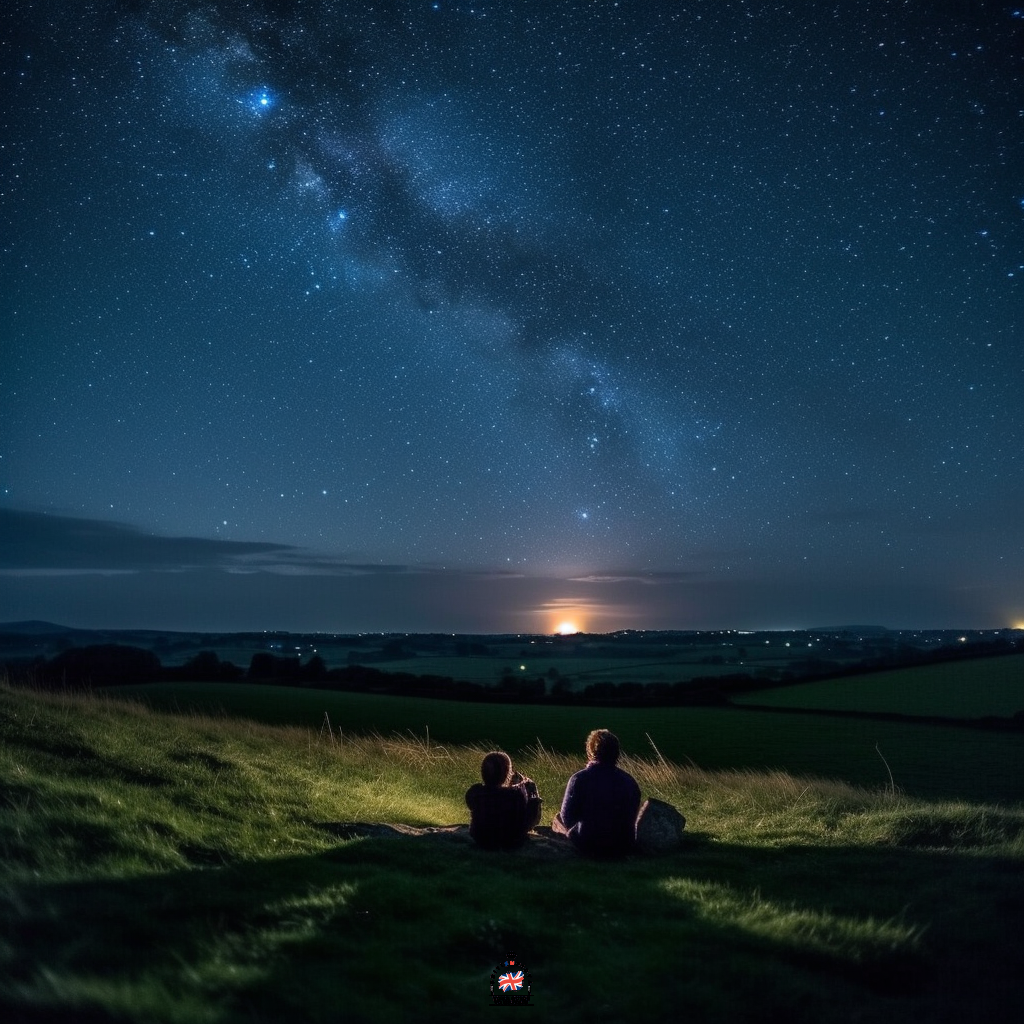
The Best Time for Stargazing in the UK
Seasonal Differences
Winter is the best time for stargazing in the UK. Why, you ask? Longer nights mean more stargazing time, and the cold air tends to be clearer, revealing more stars. But don’t dismiss the other seasons; the Milky Way is visible from late spring to early autumn!
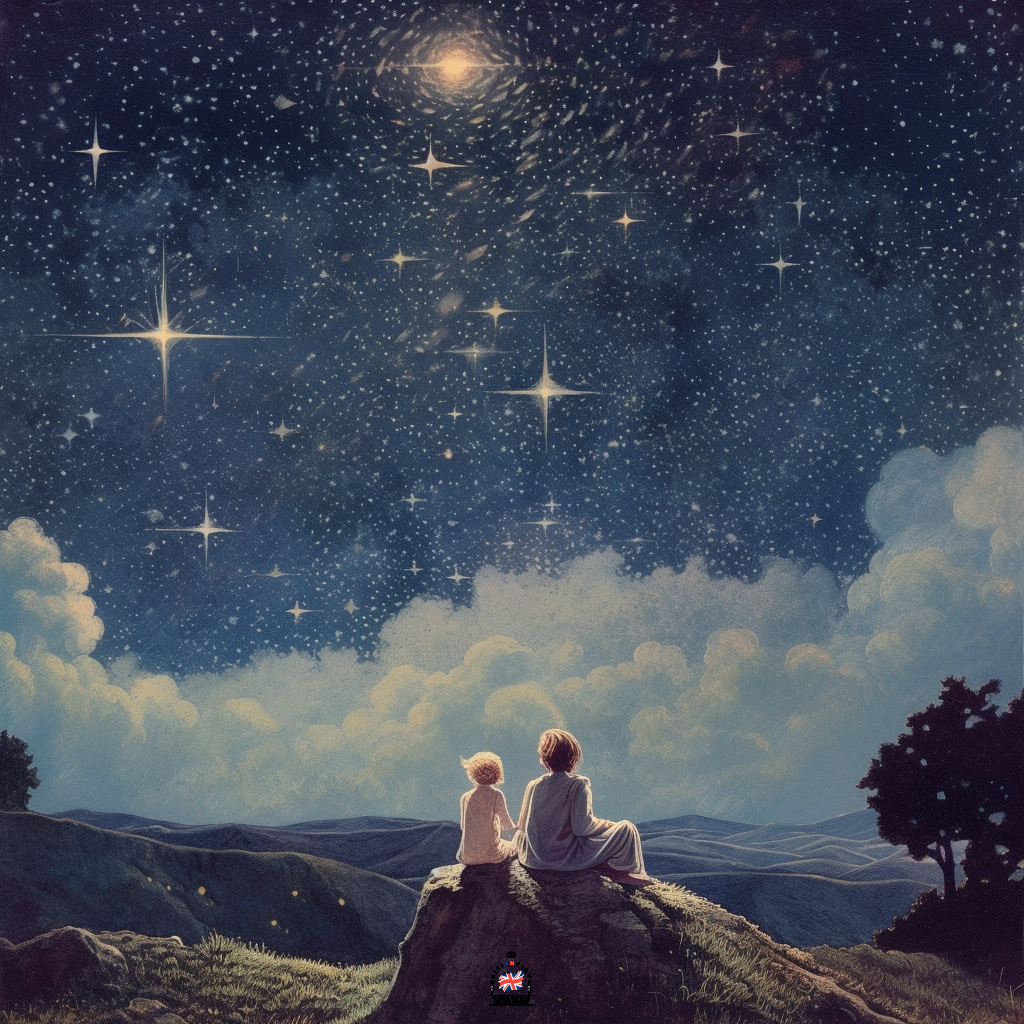
Weather Considerations
Remember, the best stargazing nights are clear and moonless. Check the weather and moon phase before heading out. Hey, we don’t control the weather, right?
The Best Places for Stargazing in the UK
Dark Sky Reserves and Parks
Did you know the UK is home to some of the world’s largest Dark Sky Reserves? These are places with minimal light pollution, allowing for amazing stargazing. The Brecon Beacons in Wales, Exmoor and South Downs in England, and Galloway Forest Park in Scotland are fantastic examples!

Stargazing Sites in England
From Kielder Observatory in Northumberland to the South Downs National Park, England offers some splendid stargazing sites. Imagine viewing the Andromeda Galaxy or the Orion Nebula from these places!
Stargazing Sites in Scotland
Scotland’s northern latitude and remote areas make it a haven for stargazers. Try the Isle of Skye or Cairngorms National Park for a celestial treat!
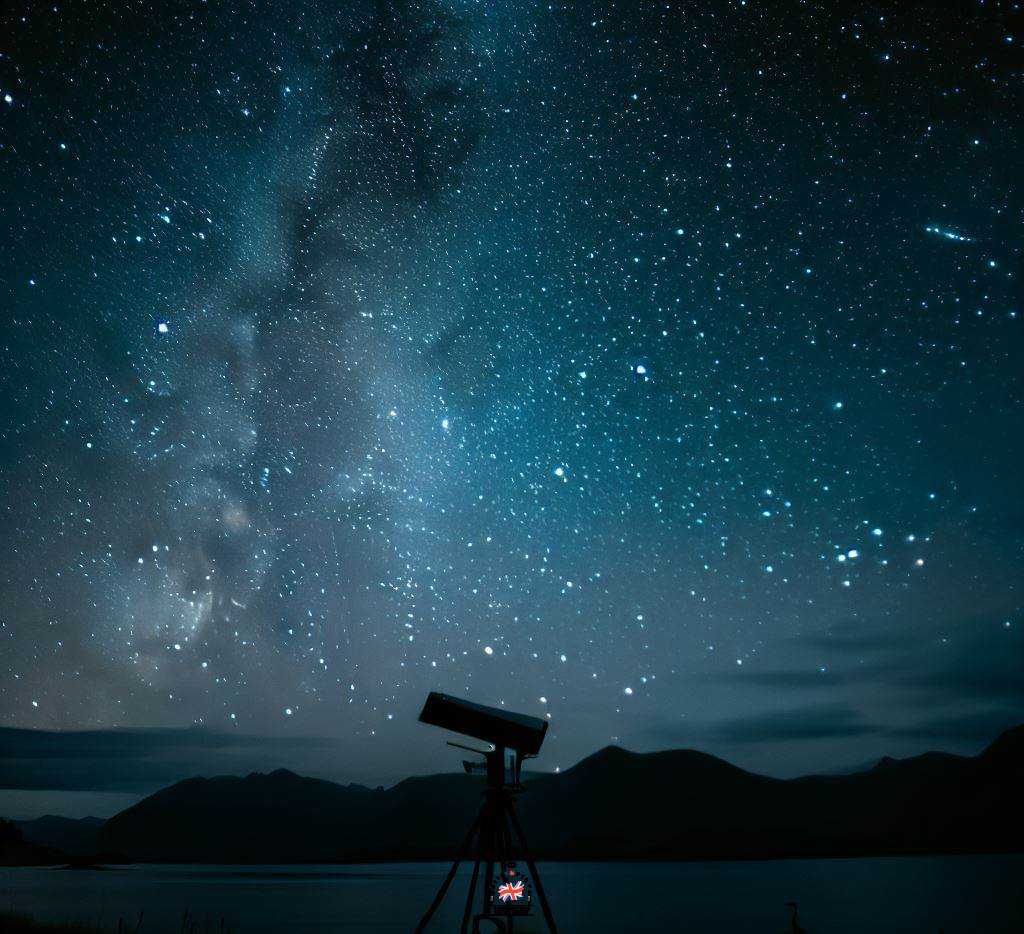
Stargazing Sites in Wales
Snowdonia National Park and the Brecon Beacons offer some of the darkest skies in Wales, making them perfect for observing the night sky’s splendour.
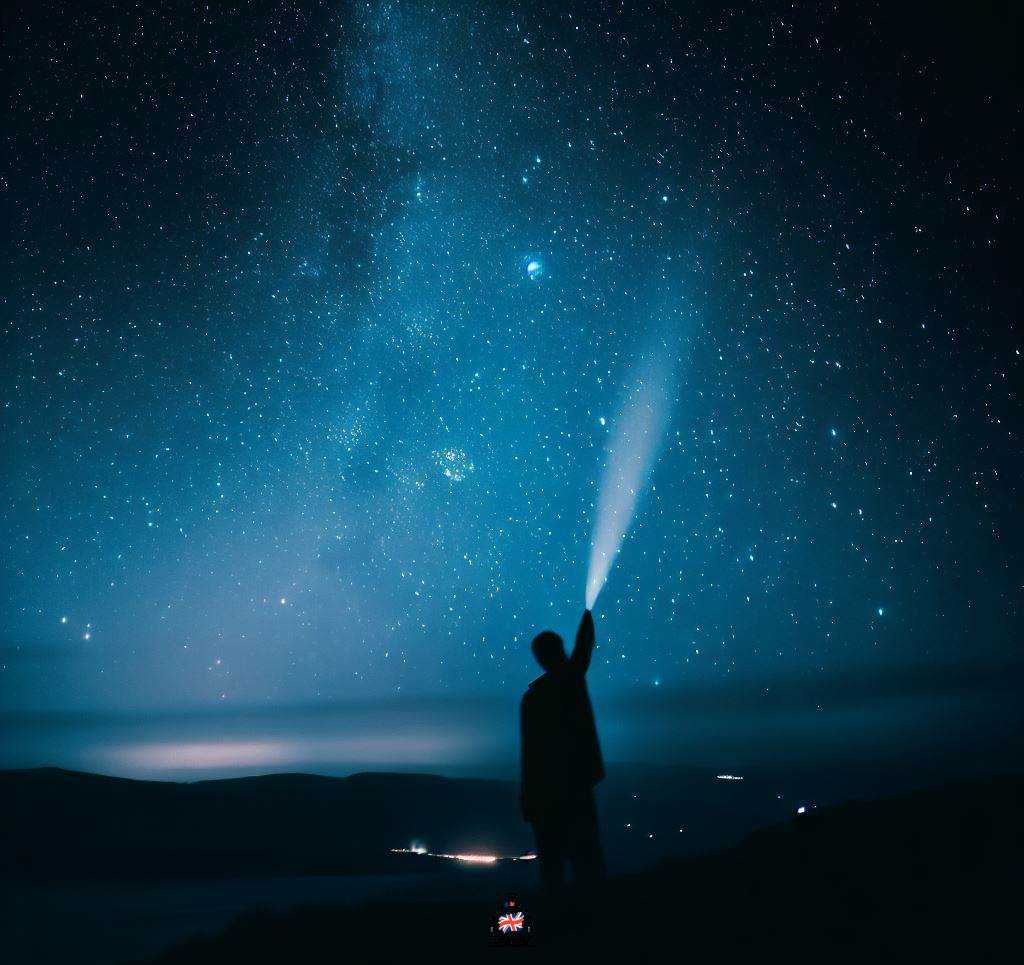
Equipment Needed for Stargazing
Telescopes and Binoculars
A good pair of binoculars or a beginner’s telescope can greatly enhance your stargazing experience. Trust us; it’s worth the investment!
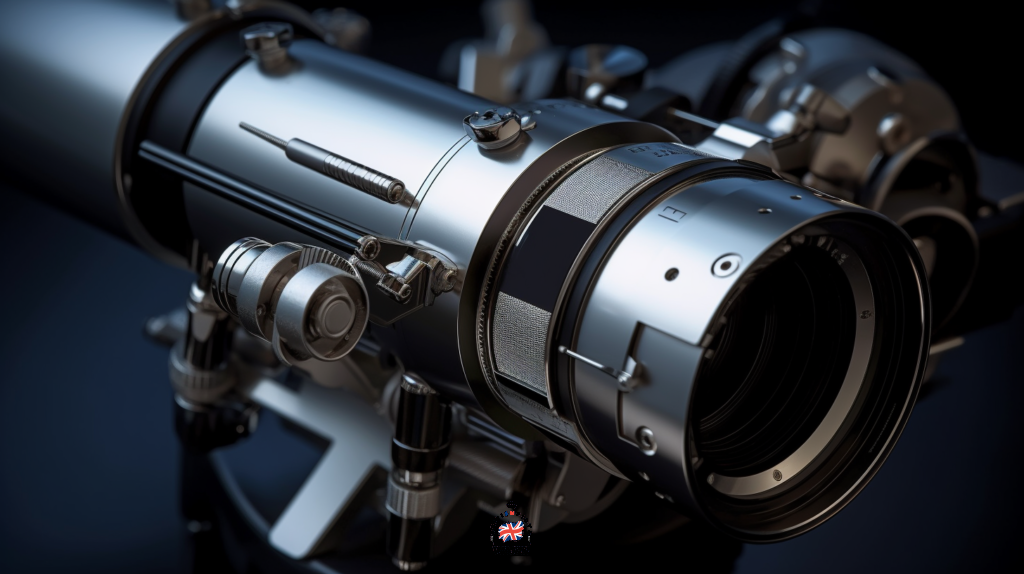
Star Charts and Apps
Navigating the night sky can be tricky. That’s where star charts and apps come in handy. They’re like Google Maps, but for the universe!
Tips for a Successful Stargazing Experience
Dress warmly, bring a red torch to preserve your night vision, and most importantly, be patient. Stargazing is about relaxing and connecting with the cosmos.
Stargazing Events in the UK
Meteor Showers
Meteor showers, like the Perseids and Geminids, are annual events that you shouldn’t miss. It’s like a fireworks display, but nature-made!

Solar and Lunar Eclipses
Eclipses are rare, but when they occur, they’re a sight to behold. Keep an eye on astronomical calendars!
Conclusion
Stargazing in the UK offers an enchanting experience, a chance to connect with the cosmos. So, what are you waiting for? Grab your telescope and embark on your celestial journey!

Best Stargazing Spots UK
- The South Downs National Park, England: This is the world’s newest International Dark Sky Reserve and offers views of the Milky Way and the constellations.
- Pembrokeshire Coast National Park, Wales: This is the only coastal national park in the UK and has several Dark Sky Discovery Sites where you can enjoy the night sky with minimal light pollution.
- North York Moors National Park, England: This park has three Dark Sky Discovery Sites (The Moors National Park Centre, Sutton Bank National Park Centre and Dalby Observatories) and hosts an annual Dark Skies Festival in February.
- Galloway Forest’s Dark Sky Park, Scotland: This is the first Dark Sky Park in the UK and one of the best places to see the Milky Way, as well as planets, meteors and even the Northern Lights.
- Exmoor National Park, England: This was Europe’s first International Dark Sky Reserve and remains one of the best areas in the UK for stargazing. Good spots include Holdstone Hill, County Gate, Brendon Two Gates, Webber’s Post, Anstey Gate, Haddon Hill and Wimbleball Lake.
- The Yorkshire Dales, England: This park has several Dark Sky Discovery Sites and offers stunning views of the stars over the rolling hills and valleys.
- Brecon Beacons, Wales: This was the first International Dark Sky Reserve in Wales and boasts dark skies that offer views of the Milky Way and meteor showers. Brecon Beacons National Park regularly hosts stargazing and meteor-spotting sessions.
- Snowdonia National Park, Wales: This park became an International Dark Sky Reserve in 2015 and has some of the darkest skies in Wales. You can see thousands of stars, as well as planets, nebulae and galaxies.
- Kielder Water & Forest Park, Northumberland: This park is home to the Kielder Observatory, which offers public events and workshops throughout the year. You can also enjoy the views of the stars over the largest man-made lake in northern Europe.
- Isle of Coll, Scotland: This island is one of only two Dark Sky Islands in the world and has very low light pollution. You can see up to 4,000 stars on a clear night, as well as shooting stars, satellites and the Milky Way

Location On Map
FAQs
1. Can I stargaze without a telescope?
Absolutely! Many stars and constellations are visible to the naked eye. However, a telescope or binoculars can enhance the experience.
2. What’s the best stargazing app?
There are many, but some popular ones include Star Walk, SkyView, and Stellarium.
3. Can I stargaze from my backyard?
Yes, but light pollution in urban areas can limit the number of stars visible.
4. When are the meteor showers in the UK?
Meteor showers occur throughout the year, but the most active are the Perseids in August and the Geminids in December.
5. How can I photograph stars?
You’ll need a camera with manual settings, a sturdy tripod, and a bit of practice. Long exposure is key to capturing stars.
